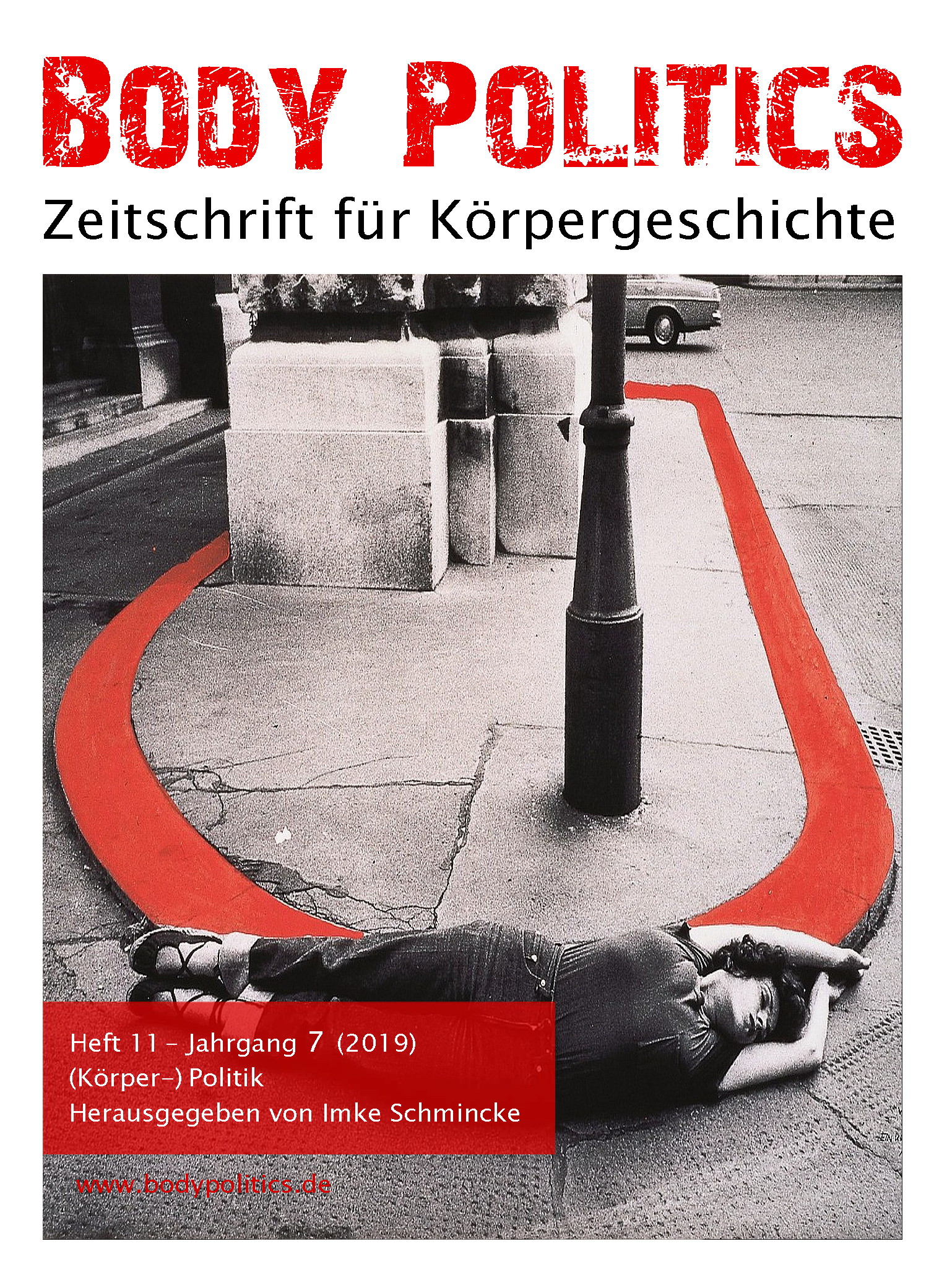Körperpolitiken und Demokratie
Sozialhygienische Wissensregime als Techniken der Demokratisierung in der Weimarer Republik
DOI:
https://doi.org/10.12685/bp.v7i11.1515Abstract
English abstract: The article focuses on the Weimar Republic and reveals that body‐ and biopolitics played a key role in the genealogy of democracy in Germany. The point of departure is that the transformation from the German Empire to a democratic state was not completed with the proclamation of parliamentary democracy. Rather, after democracy had been formally instated, various political discourses continued to define what this new democracy should look like. Here medical doctors and in particular social hygienists were cru‐ cial: They acted as public experts and brought democracy into people’s everyday lives. The paper is based on a historical discourse analyses of monographs and handbooks written by social hygienists along with influential social hygienic journals. I delineate how social hygienic regimes of knowledge operated as technologies of democratization and helped to transform a specific understanding of democracy into the every‐day‐lives of the people, an understanding of democracy that also entailed authoritarian elements and limitations, as I argue. The aim of the article is to highlight that a theoretical perspective that goes beyond an institutionalist understanding of democracy also allows to bring the subtle social foundations of a political order to light.
Downloads
Veröffentlicht
Ausgabe
Rubrik
Lizenz

Dieses Werk steht unter einer Creative Commons Namensnennung - Nicht-kommerziell - Keine Bearbeitung 3.0 International -Lizenz.


